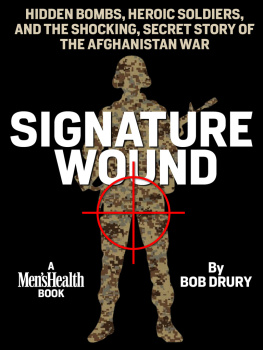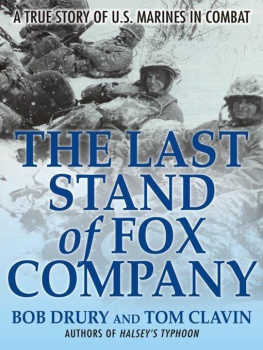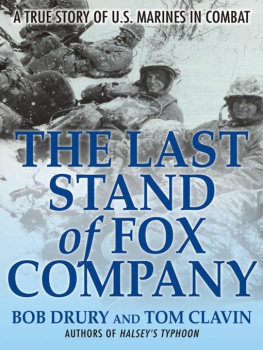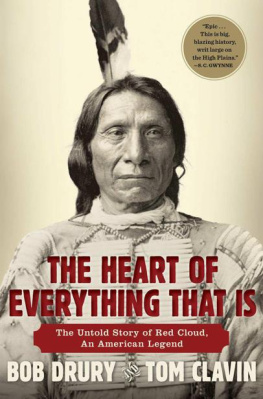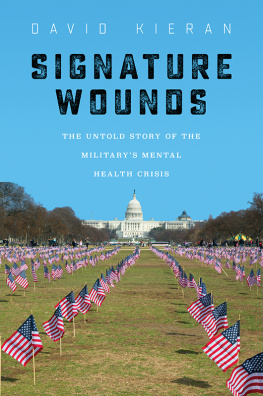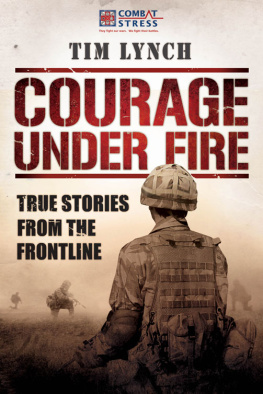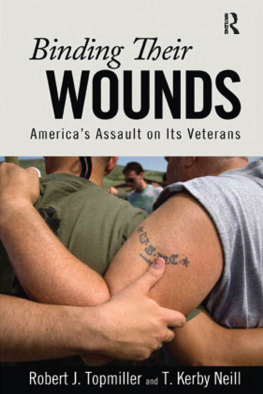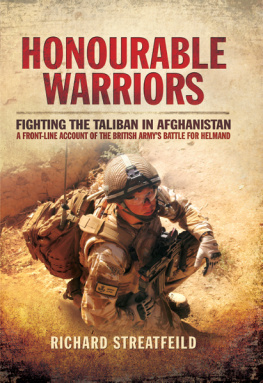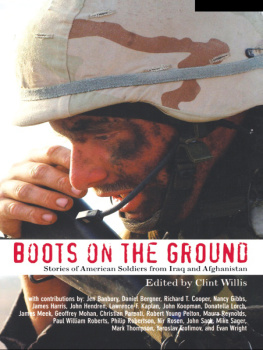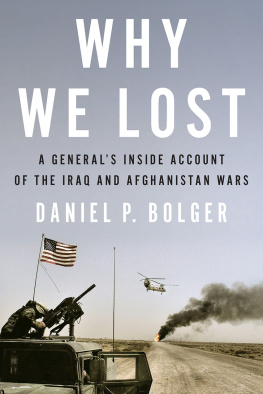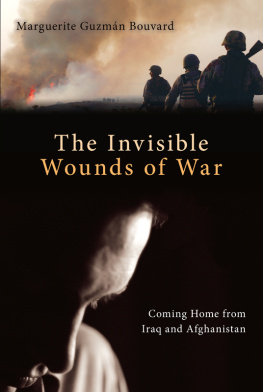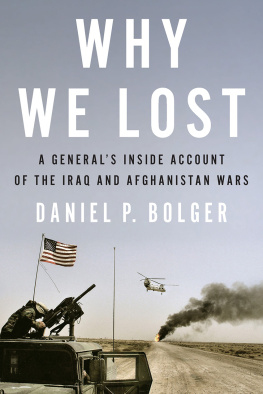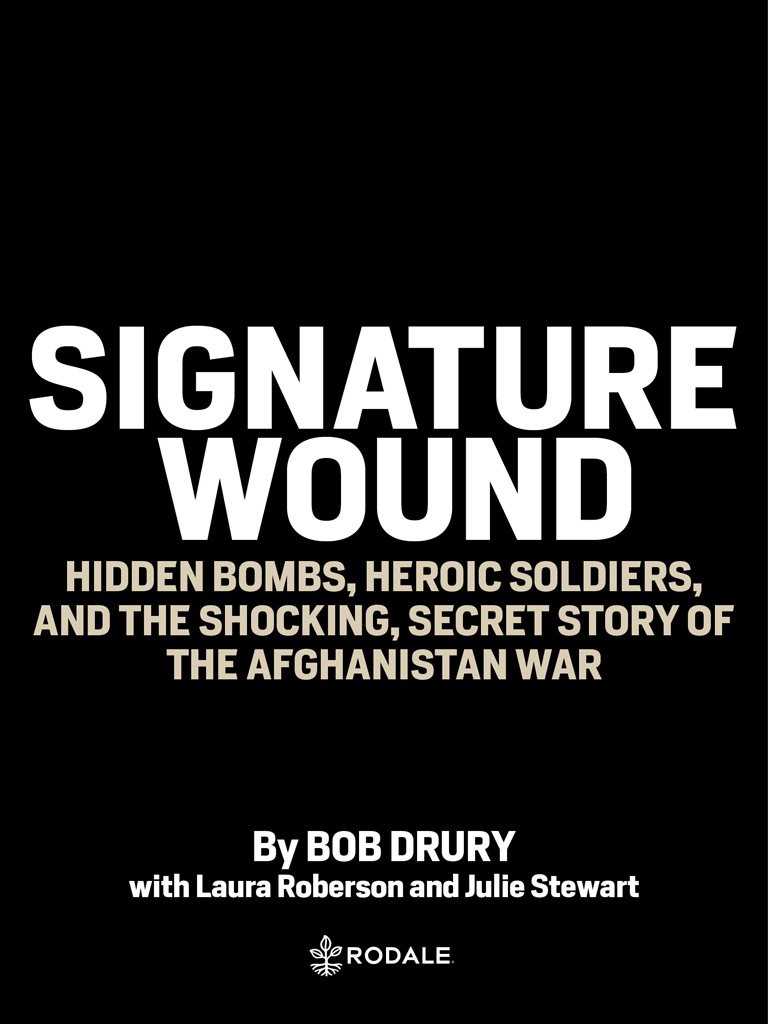
FOREWORD
Our
Responsibility
to Tell
the Tale
TEN YEARS AGO, after the tragedy of 9/11 and the subsequent beginning of wars in both Iraq and Afghanistan, I met with writer Bob Drury to ask him about covering these conflicts for Mens Health . The stories wed been hearing were both incredible and disturbinga type of warfare our nation had never engaged in beforeand thankfully for the magazine (and its readers), Bob agreed to write about them.
In the years to follow, Bob brought back tales of heroism and tragedy, reporting on military surgical care in the field, in the air, and in high-tech hospitals that are light-years ahead of anything you ever saw on M*A*S*H . He exposed the severe post-traumatic stress returning soldiers had to cope with, and how the military and government both wereand werenthelping our fighters. Bobs stories have delivered hard-hitting info straight from the sand of the Iraqi desert and the barren rock of Afghanistan.
But no story comes close to this one.
You see, every war has its signature wounds caused by frightening new tactics and weapons the military has never faced before. Blistering flesh from mustard gas in World War I. Petroleum burns from ignited oil and gas floating on the surface of the Pacific in World War II. Cancer from Agent Orange in Vietnam. And now missing legs, arms, and even genitalia caused by the IED, or improvised explosive devicea term that is now entrenched in our vocabulary.
In Iraq, insurgents have used IEDs to blow up U.S. convoys. But in Afghanistan, as youre about to read, IED use is far more personal. There are few roads large enough in Afghanistan to support military vehicles, so most U.S. patrols are on foot. Insurgents bury their IEDs and await a platoon of soldiers. When the first soldier steps on that pressure plate, a massive explosion takes out not only our fighter but those around him as well. And thats when the real battle begins, as other hidden insurgents open fire on the rest of the platoon.
The consequences of these bombs exploding underfoot? A frightening number of soldiers losing their legs and, perhaps even worse, their genitals. Now Bob Drury has brought back his most difficultbut necessarywar story yet. He spoke with men who have suffered these wounds: men who have sacrificed not just their mobility but also their masculinity for their country. He got to know them and learned to understand exactly what they were dealing with. Their stories of both incredible horror and unimaginable courage in the face of a life forever altered will astound you.
Its a story Mens Health had to tell. Its a story you need to read. And when we think about what our fighting men are facing each day in the field, its something we should never forget.
David Zinczenko, Editor-in-Chief, Mens Health
PART ONE
Guys! Guys!
I need your help.
I hit a bomb.
I dont have any legs.
IT IS A MINOR DETAILTOO MINOR, in the diabolical scheme of thingsbut it still eats at Tom Bertelsmann: He had already been up and down the same damn stretch of trail twice.
The first time was immediately after his platoons forward observer had been atomized by an improvised explosive device, or IED, planted under the narrow footbridge leading into a pomegranate orchard. Moments earlier Bertelsmann had ordered his three dozen soldiers to dismount from their double Vhulled Stryker armored personnel carriers Kevlar coffins , his men had taken to calling themso they could traverse single-file across the wooden planks spanning the orchards 6-foot-deep irrigation canal.
They were about 20 miles west of Kandahar City and it was a hot August afternoon. The taut, dark-eyed Bertelsmann (whose name has been changed for this story at his request), a 25-year-old West Point graduate, had been in country for just over a month, a cherry lieutenant in his first combat command. His rawness notwithstanding, even he sensed something had gone terribly awry the previous night when their Afghan Army counterparts had abandoned post and snuck away under cover of a moonless night. His interpreter explained that with elections nearing, the Afghans leaders may have ordered them home to vote. Lame. Bertelsmann was new in Afghanistan, but he was not stupid. He was in fact fairly certain that the nearness of the Afghan elections, and the heightened attacks that almost always accompanied them, had something to do with the Afghan soldiers disappearance.
Before even crossing the bridge, Bertelsmann had heard a whumpfing explosion and watched black smoke rise about a klick to the east, where one of his sister platoons was entering the same copse of wood, a known insurgent stronghold. They were the two prongs of the complex ambush drawn up by the company commander that morning. The detonation had been followed by a smattering of small-arms fire, and upon hearing the rifle reports, Bertelsmann had immediately double-timed his men through the deserted village adjacent to the fruit grove. His first squad had already crossed the 10-foot span and was securing the far side when Bertelsmann and his radio telephone operator scuttled over. The bridge blew just as he had grabbed the handheld from his RTO in order to call his commanding officer for news of the gunfight.
Most of the men in the platoon, on both sides of the canal, were knocked to the ground by the detonation. His forward observer, who had been walking not three strides behind him, was gone. Just disappeared. A dazed Bertelsmann crawled through the dirt to his RTO and checked him for wounds. Blood was seeping from the soldiers ears but he could find no other injuries. Concussion. Serious one. He yelled for a medic, and as the acrid smoke drifted off, he began a head count. Every man was accounted for except for his forward observer. Where the bridge had been there was now a crater large enough to act as a dam, backing up the flow of water below.
A sort of controlled pandemonium ensued. The squad fanned out but found no sign of the forward officer. Tiny pieces of paper fluttered like snow to the ground all around themall that was left of the maps and charts the missing soldier had carried in his kit. Someone pointed to an antenna caught in a tree branch high above them; it belonged to the smaller, backup radio the FO carried. Bertelsmanns staff sergeant approached holding a twisted hunk of metal. It took the lieutenant a moment to recognize it as the remains of an M-4 rifle barrel. A few soldiers, noses to the ground, on hands and knees in a search-formation grid, began bagging fingernail-size bits of flesh, bone, and uniform cloth... but not enough for an entire human body.
When they had scoured the area completely, Bertelsmann plunged into the muddy, knee-deep water seeping into the crater and led his surviving troops back into the village. He radioed for a medevac for his RTO and one of his fire team leaders, who had been nicked by several shards of flying shrapnel. He then ordered the entire platoon to start kicking in the doors of the villages scattered baked-brick structures. They searched on the off chance that the FOs body, or what was left of it, had been blown backward and spirited away by the insurgents as a trophy or, worse, a prop to be used in a video. They searched until dark. They found nothing.
In the interim, Bertelsmann reported to his CO that one of his men had been killed and two wounded, although the injured fire team leader had refused to be evacuated when the medevac chopper arrived around dusk. In the process of reporting, Bertelsmann learned that his sister platoon had also lost a man to an IED. He recalled the sound of the explosion and the billowing black smoke. Having two men killed in action had scotched the afternoons pincer movement, and the entire Stryker Company was ordered by the CO to set up night bivouac in the village.

